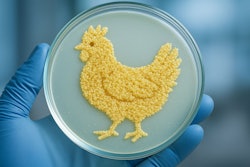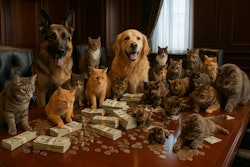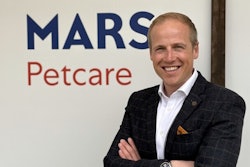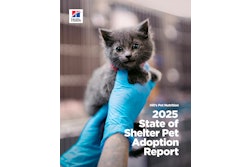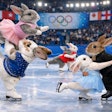
Ukrainian pet food producer Kormotech has launched a strategic partnership with Petmall, Bulgaria's largest online pet supply retailer and operator of 17 brick-and-mortar stores.
"Through this partnership, Kormotech's full range of brands — Optimeal, Club 4 Paws, My Love, and Delickcious, including both wet and dry recipes — will now be available both online and offline across Petmall's growing network," the Ukrainian company said in a statement. "Kormotech's products have already been trusted by Bulgarian pet families for over eight years, and this expanded collaboration will make premium-quality nutrition even more accessible for pets across the country."
The Bulgarian pet food market has reported stable growth and is projected to expand at a compound annual growth rate of 3.32% from 2025 to 2029, with current revenues nearing €101.65 million (US$119.2 million), Kormotech said.
Meanwhile, Petmall plans to open eight new stores in the next 18 months, covering additional cities across Bulgaria and strengthening its position in the market, according to the statement.
"We aim to become one of the top three players in Bulgaria within the next three to four years," said Yuri Bykoriz, the managing director for Central-Eastern Europe at Kormotech.
Despite Russia's ongoing invasion of Ukraine, Kormotech continues to invest in expanding its manufacturing capacities. In December 2024, the business secured a finance package to increase its export operations and geographical diversification from the European Bank for Reconstruction and Development (EBRD).
The funds will facilitate Kormotech's ongoing project to build a second pet food factory in neighboring Lithuania. The investment is worth a total of €63 million (US$67 million), according to EBRD data.
The Ukrainian company makes wet and dry food for cats and dogs. Kormotech's corporate strategy defines the goal of increasing the producer's annual sales to around $500 million by 2028.
Belgian pet food producer invests in Hungarian expansion
In a bid to expand its European manufacturing capacities, Belgian pet food maker Versele-Laga has opened a new production unit and warehouse at its plant in Hungary.
"This strategic investment strengthens our position in Europe and meets the growing demand for innovation and premium-quality pet food," the company said.
The factory is based in Csévharaszt, in the country's central Pest county.
"After 30 years of local production in Csévharaszt, we are proud to unveil our new, state-of-the-art production line and fully automated warehouse," said Versele-Laga. "This milestone is more than just an infrastructure investment — it's a strategic response to the growing demand for high-quality products and innovation in our markets, and a strong vote of confidence in our Hungarian team."
With this investment, the Belgian company said it aims to strengthen its position "in the pet segments of small mammals, birds, farmyard animals and pigeons — significantly increasing our production capacity while investing in both quality and innovation."
As part of the investment in Csévharaszt, Versele-Laga commissioned a 65-meter-high production tower, a warehouse capable of storing up to 7,500 tons of products, three mixing lines and integrated smart technology.
Created in 1932 and headquartered in Deinze, Belgium, Versele-Laga is an international producer of pet nutrition and care brand products, running seven factories in Europe, one in China, and two in the U.S. The business said it sells its output in more than 85 countries across the world, offering a portfolio of over 2,000 nutrition and care products.
"Today, more than 15.5 million animals enjoy Versele-Laga pet nutrition," the company said. "After expansion to Western and Eastern Europe, the fourth generation succeeded in making the range reach China and the U.S. in 2010."
European pet food industry urges EU to harmonize waste sorting labels
The Fédération Européenne de l'Industrie des Aliments pour Animaux Familiers (FEDIAF, European Pet Food Industry Federation) has joined a group of 70 European associations to call on the European Commission, the European Union's executive branch, to overhaul the current direction of the Joint Research Centre's (JRC) guidelines on EU waste sorting labels.
"The proposed approach, which promotes color, text-based sorting instructions on packaging, risks fragmenting the EU Single Market, increasing operational burdens for businesses, and confusing consumers," FEDIAF said in a statement.
"It runs counter to the objectives of the Packaging and Packaging Waste Regulation (PPWR) and undermines the EU's efforts to safeguard the Single Market, as outlined in the Single Market Strategy, which identifies divergent packaging labels as one of the top 10 barriers to intra-EU trade," the statement said.
The commission is tasked with establishing EU-wide sorting instructions under Article 12 of the PPWR. However, the current direction of the JRC guidelines could reimpose national barriers by obliging translation into multiple languages and introducing complex labeling requirements, threatening the harmonization that the regulation is designed to achieve, according to the industry body.
The coalition of European associations "calls for a simple and truly harmonized labeling system that supports recyclability, reduces compliance costs, and works across all member states," FEDIAF said.
